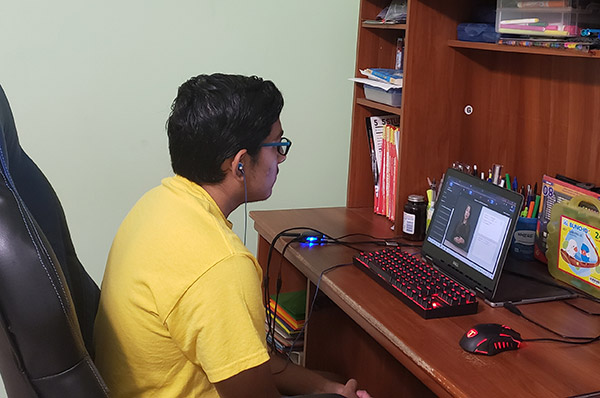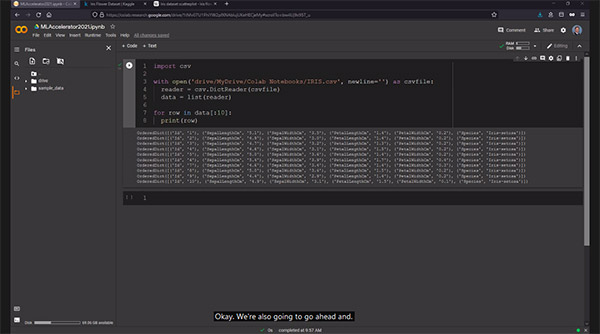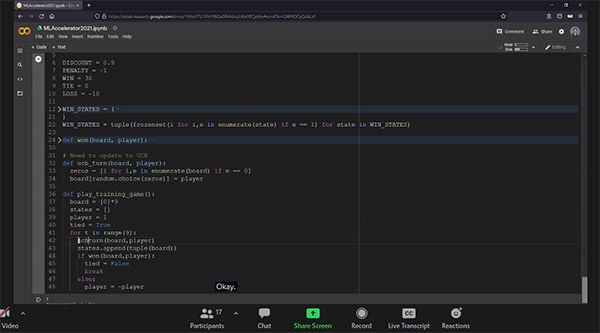Arkaprabha Kolay attended “Introduction to Programming with Machine Learning” at the North Carolina School of Science and Mathematics (NCSSM). The 3-week online course was taught via the “Canvas” system. The course focused on understanding machine learning based on the Python language — a branch of AI learning based on the idea that systems can fully function through coding.
During Arkaprabha’s first week, the class was asked to find a machine learning article , analyze it, and then discuss the article in class. “The first week was simple in terms of content-wise as my instructor, Keethan Kleiner, just posted short assignments for us to do related to learning the basics of Python. We had to follow videos that taught us the content through another platform called “Udacity,” Arkaprabha reports.
By the second week, class lessons had become more rigorous. “I learned many more new terminologies used, such as zip, enumerate, and lambda. Zip returns an iterator that combines multiple objects into one sequence of tuples (which is a sequence). Enumerate is a built-in function in Python that returns an iterator of tuples containing values of a list. Finally, the lambda operator helps the user to create anonymous functions of their own. I’ve also learned more about documentation, which I hadn’t heard of before. Documentation is used to make code easier to understand and use. Functions are a lot easier to read from this because they often use documentation strings, known as docstrings. Docstrings are a type of comment used to explain the purpose of a function. All these things were interesting and broadened my knowledge of Python,” Arkaprabha explains.
In the final week, Arkaprabha was able to meet several classmates and his instructor in “real time.” “The previous two weeks were asynchronous, but this week was live during zoom meetings from 8-11 am every day. The content this week was much more rigorous and hands on. We as a class (16 students) got to first learn how to read in and sort files, and then we got to learn how to create a tic-tac-toe game all from Python. This week was my favorite since I got to interact with my peers and got to learn the most fun things which I could have never learned if I hadn’t taken this course,” Arkaprabha says.
Arkaprabha was able to participate in activities after class. “Outside of the classroom, NCSSM also had a lot of different activities available for us every day. They were either during 12-1 pm, or 4-5 pm every day. It consisted of hands-on games such as Kahoot, Jeopardy, and even Pictionary where we could meet other students and just get to know the program better. I attended a few of these activities and had a lot of fun, I met many new people and had a great time,” Arkaprabha reports.
“Overall NCSSM was a great experience for me, and I learned many things about machine learning with programming through Python. I’m so thankful for my instructor for teaching me those things, and I’m also thankful for the Garwin Family Foundation for providing me with this opportunity to learn again through this amazing experience,” Arkaprabha exclaims!
>> Read Arkaprabha Kolay’s Final Report (PDF file, 72 KB).
>> Learn about other students’ experiences in the GFF Scholarship Program.




